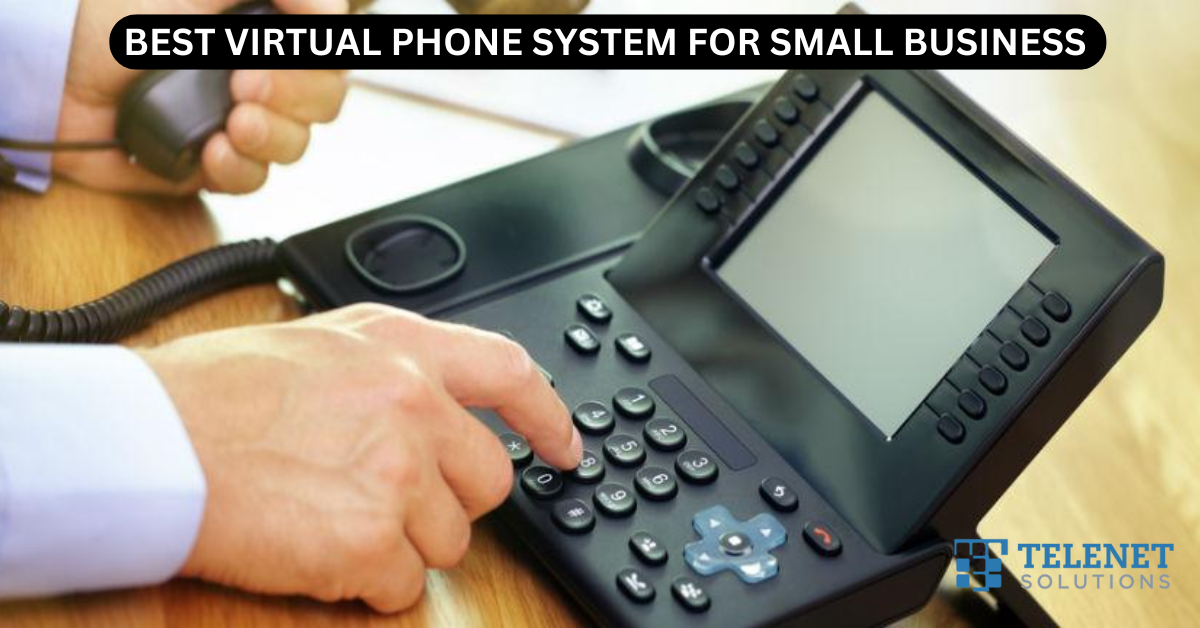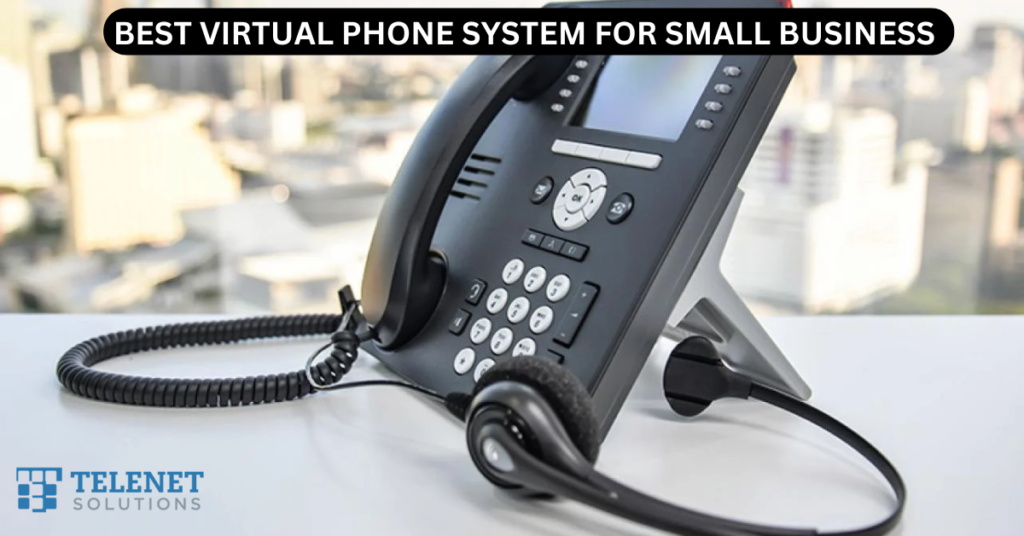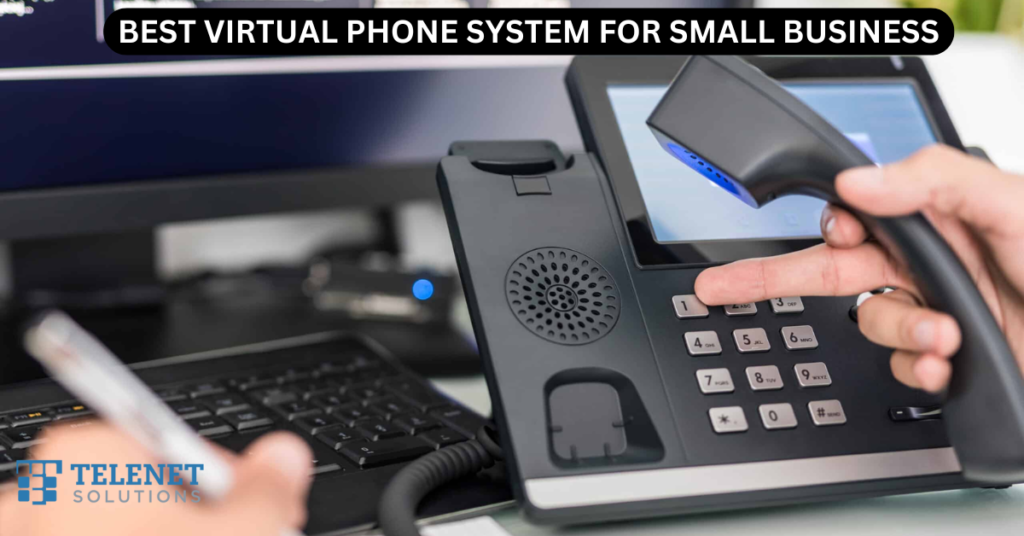Best Business Phone Services for Small Businesses in 2024
In the dynamic landscape of 2024, small businesses are continually seeking efficient and cost-effective communication solutions. The right business phone service can significantly enhance productivity, ensure seamless communication, and provide a professional image. This article will explore the best business phone services tailored for small businesses, delving into various types of systems, essential features, and the advantages of modern technologies like VoIP and virtual phone systems.
What is the Best Business Phone Service for Small Businesses?
Understanding Different Types of Business Phone Systems
When considering the best business phone service for small businesses, it’s essential to understand the different types of phone systems available. Traditional phone systems rely on copper lines and are often limited in terms of features and scalability. In contrast, VoIP (Voice over Internet Protocol) phone systems utilize internet connectivity to make and receive calls, offering a plethora of advanced features such as call forwarding, voicemail-to-email, and video conferencing. For small businesses, cloud-based business phone solutions are increasingly popular due to their flexibility and ability to scale with business growth. Another option is the virtual phone system, which allows businesses to manage calls without traditional hardware, thus reducing overhead costs.
Key Features to Look for in a Small Business Phone Service
When evaluating a small business phone system, certain key features can make a significant difference. A reliable phone service for small businesses should include a dedicated business phone number that enhances professionalism. Features such as auto-attendant, call routing, and conference calling can streamline business communication. Moreover, consider services that offer a mobile app, enabling business owners and employees to stay connected on-the-go. The best small business phone systems also provide integration capabilities with customer relationship management (CRM) tools, ensuring that all communications are tracked and managed efficiently.
Comparing VoIP Phone Services for Small Businesses
VoIP phone services have become a cornerstone of modern business communication, especially for small businesses looking to optimize their phone systems. When comparing various VoIP phone services, it’s crucial to assess the cost, features, and reliability of each provider. Look for business phone service providers that offer competitive pricing and a range of service plans tailored to small business needs. Additionally, consider the quality of customer support and the provider’s reputation in the industry. The best business VoIP services will not only provide advanced features but also ensure minimal downtime and quick response to any issues that may arise.
How to Choose the Best Business Phone System for Your Small Business?
Identifying Your Business Needs for Phone Services
Choosing the right business phone system begins with identifying your specific business needs. Small business owners should assess how many employees will be using the system, the volume of calls, and the types of communication required, such as voice, video, or messaging. Understanding these requirements will help narrow down options to the best phone solutions available, ensuring that the chosen service aligns with business goals and enhances overall productivity.
Evaluating Service Providers for Small Business Phone Systems
Once you have identified your business needs, the next step is to evaluate potential service providers. Look for a business phone service provider that has a proven track record with small businesses. Reading customer reviews and testimonials can provide insight into the reliability and quality of service. Additionally, consider the available customer support options, including live chat, phone support, and online resources. The best business phone service will not only meet your immediate needs but also offer scalability for future growth.
Cost Considerations When Selecting a Business Phone Service
Cost is a significant factor when selecting a business phone system. Small business phone services vary widely in pricing, depending on features and service plans. It’s essential to consider both the initial setup cost and ongoing monthly fees. Examine the value each plan offers, including the number of phone lines, included features, and any additional costs for upgrades or extra services. By comparing the total cost of ownership across different providers, you can make an informed decision that ensures you get the best business phone service for your budget.
What Are the Advantages of VoIP Phone Services for Small Businesses?
Benefits of Using VoIP Over Traditional Phone Systems
VoIP phone services offer numerous advantages over traditional phone systems, making them an attractive option for small businesses. One of the most significant benefits is cost savings; VoIP services typically have lower call rates, especially for long-distance and international calls. Additionally, VoIP offers a wider range of features that enhance business communication, such as virtual voicemail, call analytics, and integration with other digital tools. This technology also allows businesses to easily scale up or down, adapting to changing needs without requiring extensive hardware investments.
How VoIP Phone Services Enhance Business Communication
Implementing a VoIP phone system can significantly enhance business communication. With features like video conferencing and instant messaging, teams can collaborate more effectively, regardless of their physical location. VoIP services also enable remote work capabilities, allowing employees to connect through their office phone number from anywhere, thus maintaining a professional image. Furthermore, the ability to manage calls via a mobile app increases accessibility, ensuring that business owners and employees are always connected to their clients and colleagues.
Implementing a VoIP Phone System in Your Small Business
Implementing a VoIP phone system in your small business involves several steps. First, assess your current internet infrastructure to ensure it can handle VoIP traffic without compromising call quality. Next, select a reliable VoIP service provider that offers the features and support your business needs. After that, set up the necessary hardware, such as desk phones or headsets, if required. Finally, train your employees on how to use the new system effectively. By taking these steps, you can ensure a smooth transition to VoIP, optimizing your business communication.
Can a Virtual Phone System Improve Communication for Small Businesses?
Understanding Virtual Phone Systems and Their Features
A virtual phone system is an innovative solution that can significantly improve communication for small businesses. Unlike traditional systems, a virtual phone system operates using the internet, allowing businesses to manage calls through a web-based interface. Key features include call forwarding, voicemail, and the ability to manage multiple business phone numbers from one account. This flexibility makes virtual phone systems ideal for small businesses that may require mobility and adaptability in their communications.
The Role of a Virtual Receptionist in Business Phone Services
A virtual receptionist plays a crucial role in enhancing business communication. By managing incoming calls and directing them to the appropriate departments or individuals, a virtual receptionist ensures that no call goes unanswered. This service can significantly improve customer satisfaction, as clients receive timely responses. Furthermore, utilizing a virtual receptionist can free up valuable time for business owners and employees, allowing them to focus on core business functions rather than administrative tasks.
Choosing Between a Virtual Phone System and Traditional Options
When deciding between a virtual phone system and traditional options, small business owners should consider their specific needs and operational style. Virtual phone systems typically offer greater flexibility, lower costs, and advanced features that are not available with traditional phone systems. However, some businesses may have a preference for the reliability of traditional phone lines, especially in areas with limited internet connectivity. Ultimately, the decision should be based on the unique requirements of the business and the desired level of communication efficiency.
What are Common FAQs About Business Phone Services for Small Businesses?
What is the Difference Between VoIP and Traditional Phone Lines?
The primary difference between VoIP and traditional phone lines lies in the technology used for communication. VoIP allows calls to be made over the internet, providing advanced features and flexibility, while traditional phone lines rely on physical copper wiring and are limited in capability. Additionally, VoIP services often come at a lower cost, making them an attractive option for small businesses looking to optimize their communication without breaking the bank.
How to Set Up a Business Phone Line for Your Small Business?
Setting up a business phone line for your small business involves several steps. First, determine whether you will use a traditional phone service or a VoIP solution. Research and select a service provider that fits your needs and budget. Once you have chosen a provider, you will need to purchase any necessary equipment, such as desk phones or adapters for VoIP services. Finally, configure your phone system to ensure it meets your operational requirements, including setting up extensions, voicemail, and call forwarding features.
Addressing Common Concerns About Business Phone Service Providers
Business owners often have concerns when selecting a phone service provider, including reliability, customer support, and hidden costs. It’s essential to research potential providers thoroughly, reading reviews and testimonials from other small business owners. Additionally, inquire about service level agreements (SLAs) and the provider’s commitment to uptime and support. By addressing these common concerns upfront, you can choose the best business phone service that meets your needs and supports your business’s growth in 2024 and beyond.
What are the best phone services for small businesses in 2024?
In 2024, some of the best phone services for small businesses include cloud-based solutions like Vonage Business Communications and other VoIP business phone services. These options offer flexibility and scalability, making them perfect for modern business needs.
How do I choose the right business phone service for my new business?
When picking the right business phone service for your new business, consider factors like your budget, the number of employees, and features you need. Check out the best phone service providers that offer cloud phone systems and mobile phone apps to help you stay connected.
What features should I look for in a phone system for small businesses?
Look for features that enhance your business communication needs, such as call forwarding, voicemail-to-email, video conferencing, and mobile app access. The best phone service for small businesses will have these essential features to help you grow your business.
Are cloud-based phone systems better for small businesses?
Yes, cloud-based phone systems tend to be better for small businesses because they are often more cost-effective and flexible. They allow you to scale as your business grows and typically include features that traditional phone systems may lack.
Can I get a mobile phone plan that works with my business phone system?
Absolutely! Many small business phone service providers offer mobile phone plans that integrate seamlessly with your business phone systems. This integration helps you manage business calls and communications more efficiently.
How can a new business phone service help my small business grow?
A new business phone service can help your small business grow by providing reliable communication tools that enhance customer interaction and team collaboration. With features like call analytics and unified communication, you’ll be better equipped to handle business calls and improve customer service.
What is the difference between VoIP business phone services and traditional phone systems?
VoIP business phone services use the internet to transmit calls, offering more flexibility and features compared to traditional phone systems, which rely on physical lines. VoIP systems are often more cost-effective and easier to scale as your business grows.
How do I find the top business phone providers for small businesses?
To find the top business phone providers for small businesses, research online reviews, compare plans, and consider what other business owners say. Look for providers that specialize in business phone systems for small businesses and offer the best phone service for your specific needs.
What are some common business phone service FAQs?
Common business phone service FAQs typically cover topics like pricing, features, setup processes, and technical support. Make sure to review these FAQs on the service provider’s website to get a better understanding of what to expect.



